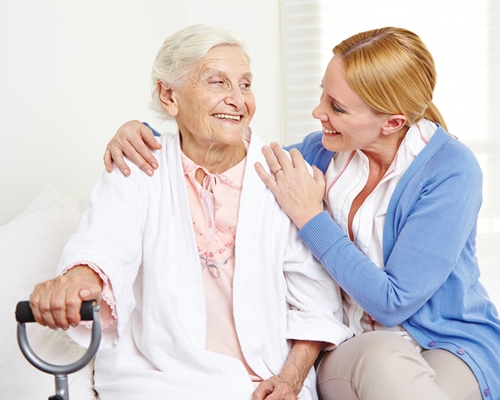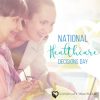What is NHDD?
This initiative has the goal of promoting advance care planning. We’ve all had those sudden health-related emergencies when we didn’t know how to act, what to do or how we could come up with the finances to fund a hospital stay or other health need. These moments are scary enough without the stress of practical matters. NHDD strives to heighten people’s awareness that they can make healthcare decisions as a preventive measure instead of an afterthought. What exactly is a healthcare decision? Just about every choice you’ve made that affected your mental and physical well-being is considered a health care decision. This includes what you ate for breakfast, the kind of shoes you wore today and much bigger topics like what medications you take or when you see the doctor. 
The importance of preventive health care decisions for seniors
As people age, they are more likely to experience health issues. From dealing with daily arthritis to becoming forgetful at the onset of dementia, these issues require a lot of health care decisions. As a caregiver, friend or family member of someone who is older, it’s important to assist the individual in making preventive decisions. These choices include appointing someone with power of attorney, creating a living will and discussing end of life care with a doctor. Not only will squaring away these advanced care-related topics provide peace of mind to the senior, they are also very beneficial to the person’s loved ones.
How can you celebrate NHDD?
To get your older loved one involved in NHDD, talk about his or her advanced care plan. This can include meeting with the person’s assisted living community nurses to ensure you and the senior understand his or her medications and conditions. Or, perhaps the senior does not have a will. This is a great opportunity to talk with an elder lawyer to create a legally binding will that includes allocating the person’s belongings to friends and family once he or she has passed away. The document may also note what medical measures the individual wants taken if he or she is not capable of voicing an opinion at the time. Choosing a person to have power of attorney is also important as he or she can help with other non-healthcare-related decisions. For a non-legally binding approach to discussing advanced care with a senior loved one, try asking the person about his or her wishes. This can range from whether the individual wants to be resuscitated if necessary to where he or she wants to spend the last days of life and who with. Caregivers are better able to provide for these factors if they know what the senior wants.
If you found an error, highlight it and press Shift + Enter or click here to inform us.



